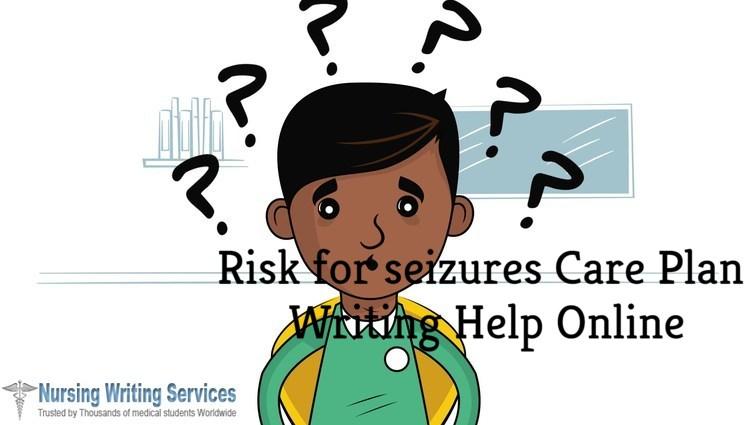
Risk for seizures Care Plan Writing Help Online are care plans about behavioral changes or physical findings due to uncontrolled electrical discharges or firing from the nerve cells of cerebral cortex. Sudden brief attacks with altered consciousness, sensory phenomena, and motor activity. Lead poisoning, injuries, infectious illnesses, fevers, brain tumors and underdevelopment are the major cause of seizures. Nursing Writing Services has the best Risk for seizures Care Plan Writing Help Online
A seizure is a term that medical practitioners use interchangeably with convulsion. Motor symptoms of seizure arise from frontal lobe while sensory symptoms are from the parietal lobe.
Risk for seizures Care Plan Diagnosis
The risk for seizures diagnosis should be more about checking for conditions that could increase the risk or cause seizures. A nurse should define whether there is the existence of these conditions:
- Ineffective tissue perfusion related to seizure
- Ineffective coping relates to epilepsy consequences
- Risk of injury relating to seizure activity
- Weak breathing pattern related to the postictal period indicated by abnormal respiratory rhythm, rate, and depth.
- Inefficient breathing pattern due to neuromuscular impairment due to prolonged tonic phase of seizure
Risk for seizures Care Plan Goals and outcomes
Goals to help a patient in achieving results that lead to control of risk factors should make up the care plan to help the patient in improving quality of life. The risk of seizures care plan should help in the achievement of these goals and outcomes.
- Identify potential risk factors and correct them
- Help the patient to verbalize factors contributing to possibility of suffocation or trauma and take necessary remedies
- Regular breathing pattern enough to meet the body oxygen needs
- Regular breathing pattern enough to meet the body oxygen needs
- Modify environment to enhance safety
- Recognize the crucial needs for assistance that will prevent injuries
Risk for seizures Care Plan Assessment
An assessment by a nurse on patient helps to view the patient holistically and determine the real needs of a patient. These assessments help a caregiver to identify likely causes of increased risk for seizure and prepare a care plan that contributes to their controlling, reducing and elimination with time.
- Seizure history and circumstances before an attack
- Description of movement during seizure and point where stiffness usually starts
- Duration of each attack
- Position of the head and the patient's eyes including size of pupils
- Presence of automatisms such as repeated swallowing or lips smacking
- Incontinence
- Presence of unconsciousness during seizure and estimate duration
- Behavior after attack including an inability speak, sleep a paralysis or weakness.
- Compliance with any medication
- History of alcohol or drug abuse
Risk for seizures Care Plan Intervention and Rationales
After diagnosis and assessment, a care plan should have appropriate interventions to manage the seizures.
Help the patient to take safety precaution
Seizures usually happen without warning and taking precautionary measure could be late if there were no advance measures. These include setting up suction equipment, padding on side rails and ambu-bag nearby.
Maintain the airway
A seizure hinders the patient from maintaining the airway or handling oral secretions. It is a good reason to set up suction.
Gather essential data for reference to a physician
A nurse should gather information on precipitating factors that happen before a seizure, specific timing and location then forward it to a specialist who can use the details to make appropriate clinical decisions.
Administer antiepileptics medication as per prescription
Patients who encounter seizures are likely to be on antiepileptic medications that a caregiver should ensure they receive prompt and take them when necessary such as when seizures last longer than 2 minutes. A nurse should also monitor other medications and call for a reevaluation of any medicine that causes or increases the times that a patient encounters seizures.
Provide emotional support
Seizures cause confusion and panic. Offering support and empathy to a patient is important.
When attending to a patient with high risk for seizure, a nurse should teach family, colleagues, and friends who spend much time around the person about the essential actions to take if they notice that it is about to occur.
Risk for seizures Care Plan Writing Help Online
Have you just realized that your Risk for seizures Care Plan is due tomorrow morning? That is fine! Get some sleep, and let the best Nursing Care Plans Writing Services offer you custom Risk for seizures Care Plan Writing Help Online.



